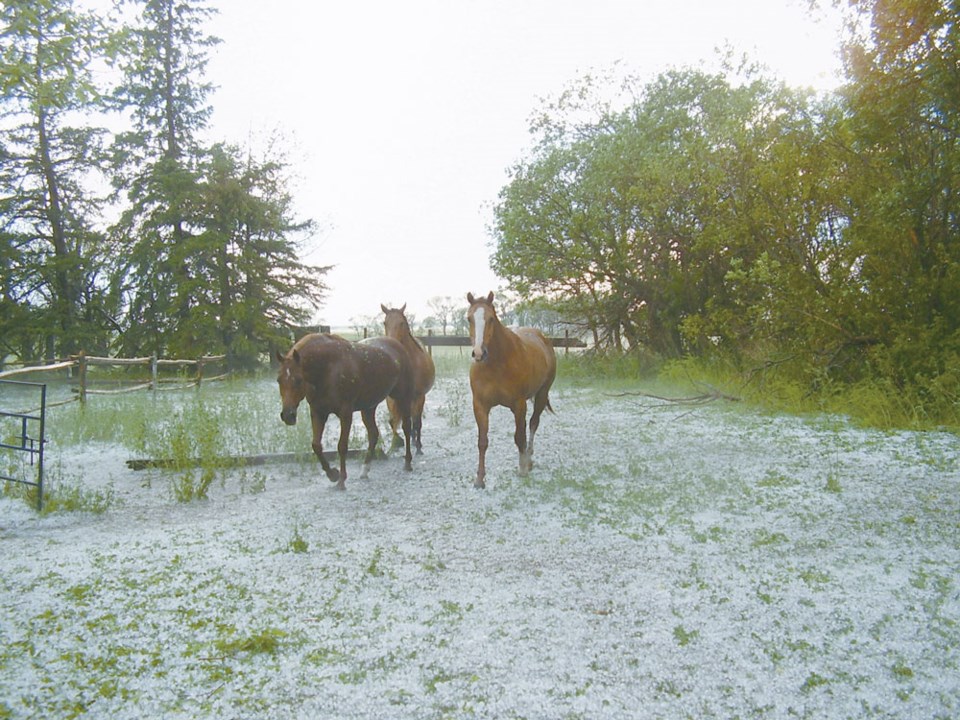Last week there was a report of a horse in the RM of Estevan that had been positively identified as rabid.
The horse was found to be infected with rabies over the weekend of Oct. 18 and 19, and was put down at the beginning of last week.
Dr. Clarence Bischop, Saskatchewan’s rabies risk assessment veterinarian who is in charge of the investigation into the case, said they don’t know exactly how the horse was infected but said it may have been bitten by a skunk.
“This horse was on another property where a rabid skunk was found back in the beginning of September. Whether the skunk that was found there is the culprit or one of that skunk’s brothers or sisters or whether it occurred after it went back home, we don’t really know,” said Bischop, who noted disposal of the rabid horse was between the owner and their veterinarian.
He declined to disclose in which field the infected horse resided and who owned the horse.
Rabies is a disease of the nervous system caused by a virus that affects humans and animals and is spread through saliva. In Saskatchewan, it is most often diagnosed in skunks, and it ultimately causes death. There is no cure for those infected with rabies.
Between January and August this year there have been seven rabies cases reported. Four of those involved bats and three cases were found in skunks. There was one case involving a horse in both 2012 and 2011.
Veterinary clinics around the province obtain and submit samples in suspected rabies cases. Bischop’s job is to be the gatekeeper and assist with distribution of test results. He also handles any animal restrictions that need to take place when there has been positive contact with rabies, and that includes quarantines. Public health will step in to deal with any human exposure with the virus, though there hasn’t been any reported contact with humans in this case.
Bischop said in most cases, it takes about three to six weeks for symptoms to manifest themselves in an infected animal. For an animal as large as a cow, or in this case a horse, it generally takes about two months. Though domestic animals with rabies pose a particular risk to humans, Bischop said it is rare for a horse to spread the disease to people.
“When we look at a case with a horse or a cow, very rarely would they spread it to any other animal on the property, but we look at a herd or group of animals, and we can probably guess that if, for instance, a skunk walked through a group of animals and there’s one that came down with rabies, it may not be the only one that came into contact with the skunk. We do place a quarantine on the herd to just make sure they don’t move off the property and potentially expose somebody who isn’t aware of the risk of rabies with these animals.”
Bischop said when identifying the disease, experts need to see the clinical signs and samples, while visible signs may include an animal that either is particularly tame or aggressive, attacks without reason, has difficulty swallowing or foams at the mouth, and may have weakness of limbs.
The risk of exposure will also be measured, and in southeastern Saskatchewan, there is greater risk than in some other places.
“We know there’s lots of opportunity in eastern and southeastern Saskatchewan to come in contact with skunks that may have rabies. It would be a different story if it was over in Alberta or in Maple Creek where there is much less rabies around,” he said, adding, “We’re not at a particularly high level of rabies in the province right now, but it’s still here.”
Though there wasn’t a quarantine when the Mercury spoke with Bischop last week, he said there probably will be. He was visiting the site Monday evening.
“We’ve had discussions on the phone and that’s likely to be the case. The herd mates will remain on the home property.”
Domestic animals like horses pose a particular risk to humans, and veterinarians widely suggest rabies vaccination for any farm animal that may interact with a wild animal.
“A lot of the cases start off with calls from the owner to the veterinarian or to public health in case there has been exposure,” said Bischop, who is then contacted.
He noted that there was a change in who handled rabies cases as of April of this year as it was previously handled by the Canadian Food Inspection Agency. The CFIA’s activity has now been limited to lab testing, which is done in Lethbridge, Alta.




